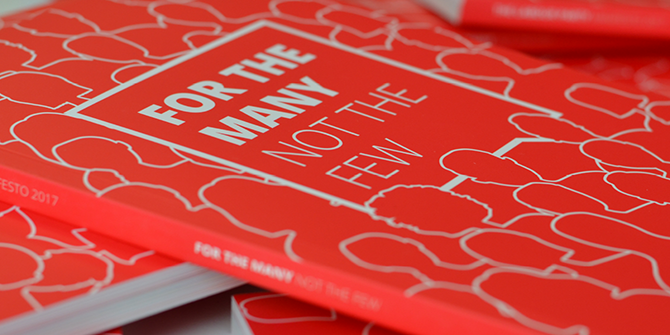 Drawing on interviews conducted with British politicians, Dame Jane Roberts explains the different impacts of leaving political office. She writes that the process is often made unnecessarily harsh, something that may be preventing some politicians from standing down altogether, with implications for representative democracy.
Drawing on interviews conducted with British politicians, Dame Jane Roberts explains the different impacts of leaving political office. She writes that the process is often made unnecessarily harsh, something that may be preventing some politicians from standing down altogether, with implications for representative democracy.
Losing political office is an integral part of any system of representative democracy. But we don’t like to talk about it in polite company. It’s too close to the bone. There’s a great deal of excited chatter as well as scholarly work about how to get into elected office – but it all falls oddly silent at the other end of the spectrum. Politicians currently in elected office don’t like to think about their future departure and those who have left office, particularly if they have been defeated, may find it too painful to talk about the circumstances of their exit. Former MP Ed Balls is an exception, having confronted head on in the opening chapter of his book his widely publicized ejection from office. Even for those who choose to stand down, the transition from elected office can be a discombobulating experience and far from straightforward. It’s about political mortality.
And it is often a very sudden death. ‘Like a bereavement – and it was – but there was no funeral’ was how it was described in my research, in which I conducted in-depth interviews with former MPs and council leaders and, where possible, their partners, as well as current politicians. Once an announcement to stand down is issued or following a defeat, the political circus moves on immediately. The phone stops ringing both literally and metaphorically and the politician dropped like a stone. Those who are defeated may describe powerful emotions of devastation, humiliation, failure, resentment and betrayal as their opponents cheer and erstwhile colleagues fall away for fear of contagion.
But even after standing down, all goes eerily quiet, leaving the now former politician possibly only to ruminate about how to channel cherished beliefs and values. The sudden disappearance of income, purpose, daily structure, status, social networks – and simply mattering in the same way – can be highly disorientating. Contrary to public perception, there is no revolving door from Parliament into the corporate sector: most former MPs now struggle long and hard to find employment; council leaders who increasingly (but incautiously) work full-time in the role even more so.
That politicians leaving office hurtle back on to ‘civvy’ street, avoiding any elision between being in and out of office, is just as it should be in democratic terms. But the personal struggle is often made unnecessarily harsh: a punitive, salacious glee in the media; shockingly little in the way of acknowledgement of the contribution made by the politician (and often their family) over many years; not even the statutory redundancy pay to departing council leaders; cut off immediately from municipal communication, unable even to say goodbye to colleagues; no access to a local government pension (courtesy of the now Lord Pickles); the absence of the normal support given in other occupational roles on retirement or redundancy; and barely any interest in making use of the skills and experience of former politicians in civic society.
My contention is that this matters not just on a human, empathic level but that there are wider implications for representative democracy. Any healthy system of representative democracy depends on a reasonable degree of ‘fluidity’ between those who are elected to serve in political office and those whom they represent. That is, that citizens should have a reasonable chance of gaining positions of elected political leadership should they be able and motivated to do so, and not be precluded from seeking office by disproportionate risks that might be encountered. And in order for some to gain political office for the first time, others, of course, must leave: but they will be reluctant to do so if the stakes are too high.
‘Democratic rotation’ is hardly a new idea. That there should be an obligation to leave office after a defined period is an idea with deep roots in classical republican political thought. Rotation in office was seen as allowing more opportunity for a greater number to serve in public office and thus deepen their understanding of the public responsibilities that they would retain once they had left office. The idea was later taken up in the Renaissance city-states and by Harrington in England, and later still in the USA by Jefferson who, in 1811 insisted, ‘there is a fullness of time when men should go, and not occupy too long the ground to which others have a right to advance.’ In the modern USA, the movement in support of term limits (keenly contested too) has been drawn directly from the principle of rotation of office, designed both as a check on excessive power and an opportunity to enhance political participation.
The notion of democratic rotation, however, seems to have fallen by the wayside in the UK. I think that this is shortsighted. In the absence of a reasonable degree of political fluidity, representative democracy is diminished: it reinforces the perception of a political class separate from the rest of the population; it limits the range of people who are able and willing to come forward to serve in elected office; and with exit made more difficult than it needs to be, there are fewer opportunities to share the deepest experience of political citizenship, representing others.
We know that politicians are perceived to be – and are – different from those whom they represent, seen as a separate political class, compounding cynicism in and disengagement from politics. We know that access into political office is now narrowing again with a predominance of ‘career politicians’ at Westminster. And we need to know that if the risks of leaving office are disproportionately high, we only further entrench the perception of politicians’ distance from their electorate.
With exit so potentially fraught, might some politicians be tempted to remain in office for longer than they might otherwise, ‘bed-blockers’ as one unkindly described them in my research? Some were described as ‘trapped’: too late to return to earlier careers, too risky to leave, and too soon to retire – ‘Huis Clos’ as one former MP put it. Might it be too precarious for some even to embark on standing in the first place given the risks involved? Might there be some groups for whom the risks would be seen to be especially high thus influencing the nature and composition of those who get to be elected? As one participant lamented, ‘I gave up something that I can’t go back to … you want to make it easy for people to leave.’ But we don’t. I think it’s time that we did – for all our benefit.
_____________
Note: the above draws on the author’s published work in British Politics.
 Dame Jane Roberts is Research Fellow in Public Leadership at The Open University Business School. Jane is a medical doctor and worked for many years as a hospital consultant in Child and Adolescent Psychiatry. She was Leader of the London Borough of Camden from 2000 to 2005. She chaired the Councillors Commission for the Department of Communities and Local Government (2007-2009) and amongst other roles, she chairs the think tank New Local Government Network.
Dame Jane Roberts is Research Fellow in Public Leadership at The Open University Business School. Jane is a medical doctor and worked for many years as a hospital consultant in Child and Adolescent Psychiatry. She was Leader of the London Borough of Camden from 2000 to 2005. She chaired the Councillors Commission for the Department of Communities and Local Government (2007-2009) and amongst other roles, she chairs the think tank New Local Government Network.
All articles posted on this blog give the views of the author(s), and not the position of LSE British Politics and Policy, nor of the London School of Economics and Political Science. Featured image credit: Pixabay (Public Domain).








1 Comments